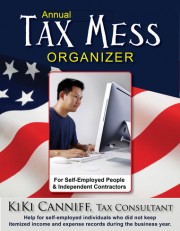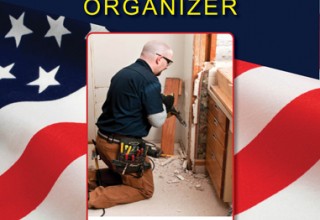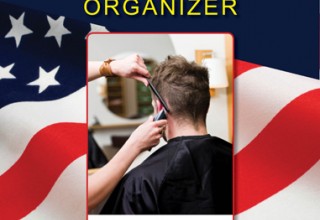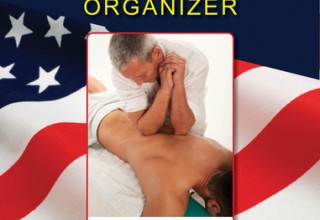Most Independent Contractors Can Eliminate 90% Of Tax Headaches With This Annual 4-Step Recordkeeping System
Whether getting ready for a trip to the tax accountant's office or self-preparing a small business tax return, this system takes the hassle out of tracking business expenses. Based on IRS audit rules, it will keep the self-employed business owner audit proof while eliminating monthly expense recordkeeping.

Keizer, OR, March 11, 2015 (Newswire.com) - Independent contractors and entrepreneurs who want to make tax time easier would do well to remember the letters R-E-S-T at tax time. They represent a super-simple annual recordkeeping system for sole-proprietors who have no employees. REST stands for Receipts, Envelopes, Sort and Total, a four-step method that makes short work out of getting an entire year's worth of deductible business expenses organized at tax time.
Whether getting ready for a trip to the tax accountant's office or self-preparing a small business tax return, this system takes the hassle out of tracking business expenses. Based on IRS audit rules, it will keep the self-employed business owner audit proof while eliminating monthly expense recordkeeping. Here's how it works:
"Most independent contractors make way too much work out of tracking business expenses for the IRS. This system makes it simple."
KiKi Canniff, Author of The Annual Tax Mess Organizer for Self-Employed People
Step One - Receipts. Get a receipt every single time business funds are spent. Since a tax audit is nothing more than a request for the small business owner to show proof for a deduction taken in a previous tax year, this is always important. When a small business owner has the supporting receipt an audit is over quickly and, unless tax law has been interpreted wrong, the owner will end up a winner. Fail to produce requested receipts and additional taxes plus penalties could be assessed. And worse yet, a failed audit often opens the door to similar audits on other tax years.
The solution is simple. Never spend one single penny of business money without getting or creating a receipt. A proper receipt contains the date of purchase, amount paid, item(s) purchased, and who got the money.
Step Two - Envelopes. At the beginning of the tax year get three large padded mailing envelopes and label them Receipts #1, Receipts #2 and Receipts #3. Keep one in the car, one where work is performed, and the third at home. Once that is done, all the independent contractor needs to do for the next 12 months is to shove every business receipt obtained into the nearest receipt envelope.
Step Three - Sort. When the tax year is over grab those three large receipt envelopes, a pen and a dozen 9x12 envelopes. Begin by labeling each of those envelopes with one of the following categories:
Advertising & Postage
Automobile
Contract Labor
Furniture & Business Equipment
Meals & Entertainment
Office, Business & Cleaning Supplies
Rent
Repairs & Service Fees
Taxes, Licenses & Professional Fees
Travel, Meals & Education
Utilities
Everything Else
Lay all 12 envelopes out on an empty desk or table and grab the first receipt envelope. Begin pulling out the receipts, determine which of the categories each fits best, and lay the receipts on top of the proper envelope. If the receipt fits none of the first 11 categories place it on top of the envelope marked Everything Else. Do the same with all of the receipts in the other two padded envelopes as well.
Step Four - Total. All that's left now is to total the receipts sitting on top of each envelope, write that amount on the outside of the envelope, and shove the receipts inside. There's no reason to organize those receipts unless a tax audit is ordered.
Grab a sheet of paper, write those 12 categories and totals on it, and label this Business Expenses. Give this list to the tax preparer, he or she will need lots of other numbers as well, but that's another subject. The self-preparer will find a line for each on the Schedule C tax form.
There are lots of IRS rules written for business owners, both large and small, and that includes sole-proprietors. In order to take advantage of those rules a person must first, know those special tax rules exist, and second, meet all requirements necessary to qualify. The smart independent contractor makes it his or her job to learn all they can about IRS rules.



